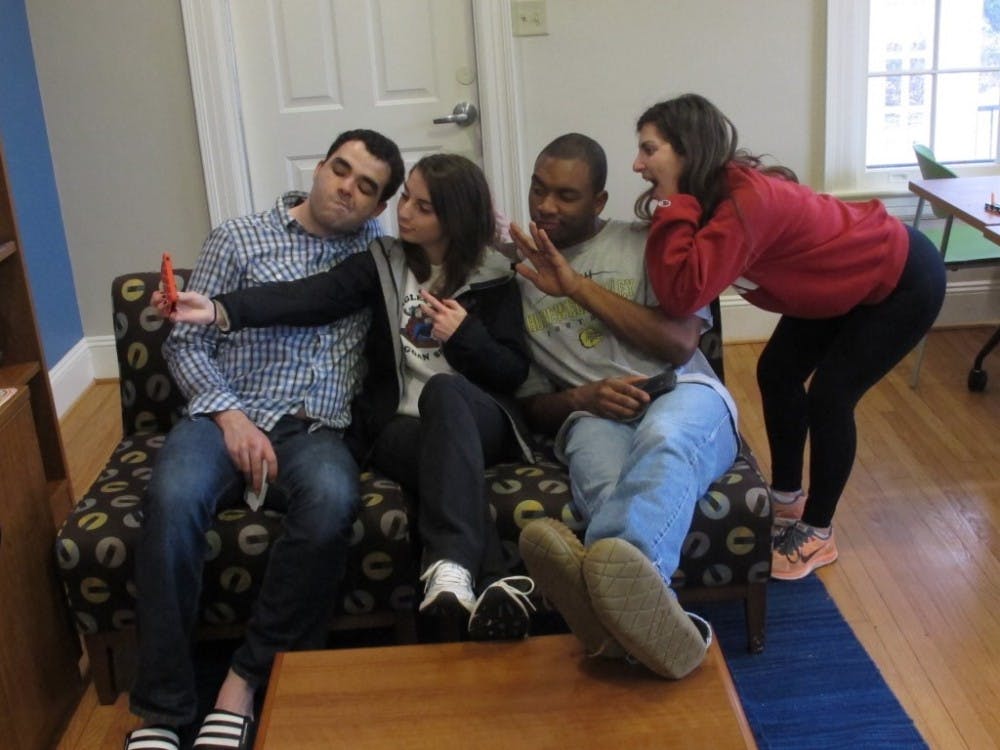Millennials, the term coined for the emerging youth generation between the ages of 18-33 in 2014, are detached from political parties and organized religion, according to the results from a Pew Research Center study. The study, released March 7, also found Millennials are more connected to social networks and other technologies than past generations.
The study was based on a survey of 1,821 adults, including 617 Millennials, and was conducted in Febuary. It also analyzed information from previous Pew and government studies.
Politics
The study found 50 percent of Millennials choose not to identify with any political party, more than any other generation surveyed in 2014.Kenneth Fernandez, assistant professor of political science and policy studies at Elon University and director of the Elon Poll, said identifying as Independent is a more popular option now than it was for young people in the past.
“Generally, I think the trend happens because young people are new to this, and they don’t have much information,” Fernandez said. “There are more divides between Democrats and Republicans, which can be a turnoff.”
Despite the tendency to claim they are Independent, national exit polls from the 2008 and 2012 elections showed that a majority of Millennials voted for President Obama, creating a partisan voting gap between younger and older generations.
Fernandez said Millennials tend to vote Democratic because the party’s stances reflect their views on social issues. The study found that a majority of Millennials favor same-sex marriage and the legalization of marijuana, and Fernandez said Millennials don’t want restrictions on these and other issues.
Freshman Anna Dorsey said she has noticed that fellow students identify as political Independents.
“A lot of beliefs and customs change over time,” Dorsey said. “People don’t want to get wrapped up in a political party when they’re not 100 percent in agreement with those beliefs.”
Religion
The study also found that Millennials are less likely than people of other generations to identify as religious. In the Febuary survey, about one-third of Millennials described themselves as religious, compared with a majority of people in other generations.Adam Miller-Stubbendick, assistant chaplain and director of religious and spiritual life at Elon, is a Millennial and said he has noticed this trend when he works with students at the university’s Truitt Center for Religious and Spiritual Life.
“Part of it has to do with what the term ‘religious’ means, and there’s a certain amount of skepticism towards institutions,” he said.
Millennials are also less likely than people of other generations to believe in God, with 58 percent of respondents saying they are “absolutely certain God exists.” Millennials are less concerned about the increasing number of non-religious people in society, according to the survey results.
“We all live in that life with a lot of things competing for our attention, for our values,” Miller-Stubbendick said. “But religion is not as central.”
Social Media
Despite the findings about disaffiliation from political and religious institutions, other data from the study showed Millennials are more connected to each other through technology than people of other generations.The study found that Millennials have more Facebook friends and cell phone usage than people of other generations.
Fernandez said these trends might affect young people’s attitudes toward the political parties and level of trust in government.
“The Internet age influences attitudes on privacy,” he said.
Miller-Stubbendick said social media outlets create a sense of community that is different from those found within religious institutions. He said organized religion helps to ground people, but it might not be the solution for everyone.
“We don’t have time to take a rest,” Miller-Stubbendick said. “Where is something that’s telling us to slow down?”
Dorsey said she has noticed social media gives young people a platform to share their views about politics and religion, so they might not be willing to join structured groups.
“With the Internet, people not only connect socially but also with people who share our ideas,” she said. “People share Bible verses or political articles.”


